Pork Chop Hill (1959)
“We’re getting no place; every one of these trenches is a separate dogfight.”
|
Synopsis: |
|
Genres, Themes, Actors, and Directors:
Review: … with occasional cut-aways to diplomatic negotiations: Of special interest are the roles played by James Edwards and Woody Strode as Black soldiers, given that the Korean War forced mandated integration of troops for the first time (for purely pragmatic reasons). Strode is deeply uninterested in sacrificing his life for no good reason, while Edwards strives to hold him accountable: Pork Chop Hill makes for a brutal but valuable portrait of motivation and decision-making in the midst of unimaginable constraints; it’s not a film I plan to revisit, but I’m glad I sat through it once. Watch for a host of familiar young male actors in the cast, including an uncredited Harry Dean Stanton in a brief early scene: … Rip Torn as Lt. Walter Russel: … George Peppard (prior to Breakfast at Tiffany’s) as Cpl. Chuck Fedderson (shown here next to Harry Guardino, playing a private eager to head home): … Norman Fell (of “Three is Company” TV fame) as Sgt. Coleman: … and Martin Landau in his brief film debut: Notable Performances, Qualities, and Moments: Must See? Links: |
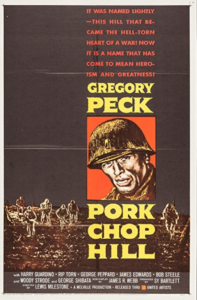
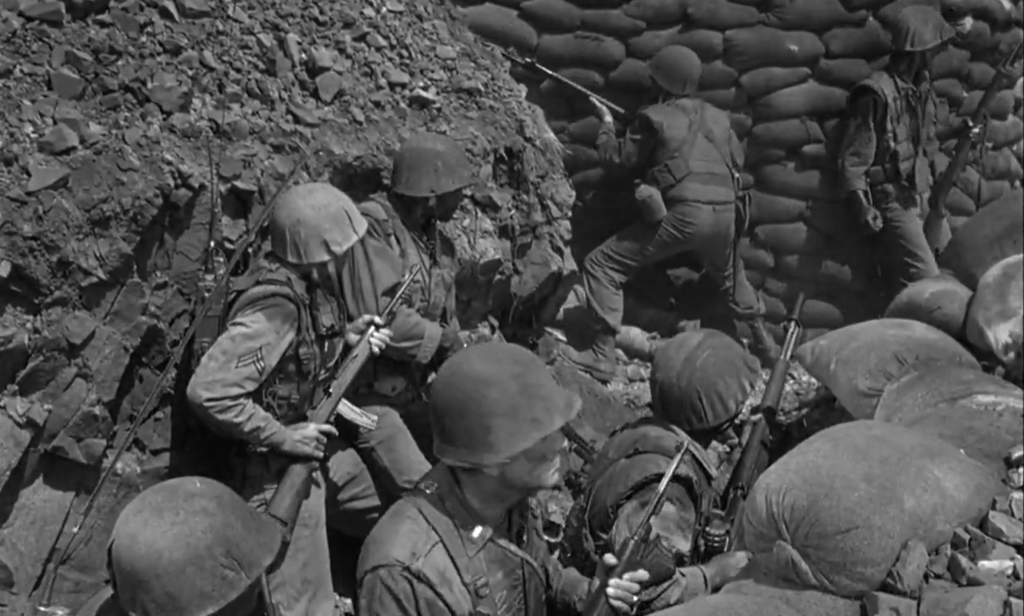
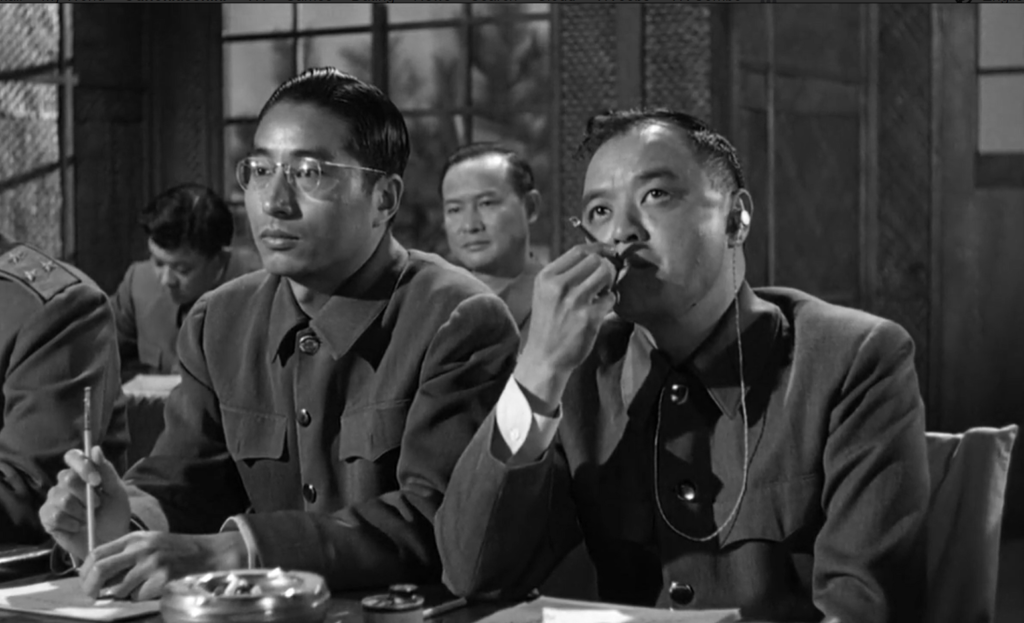
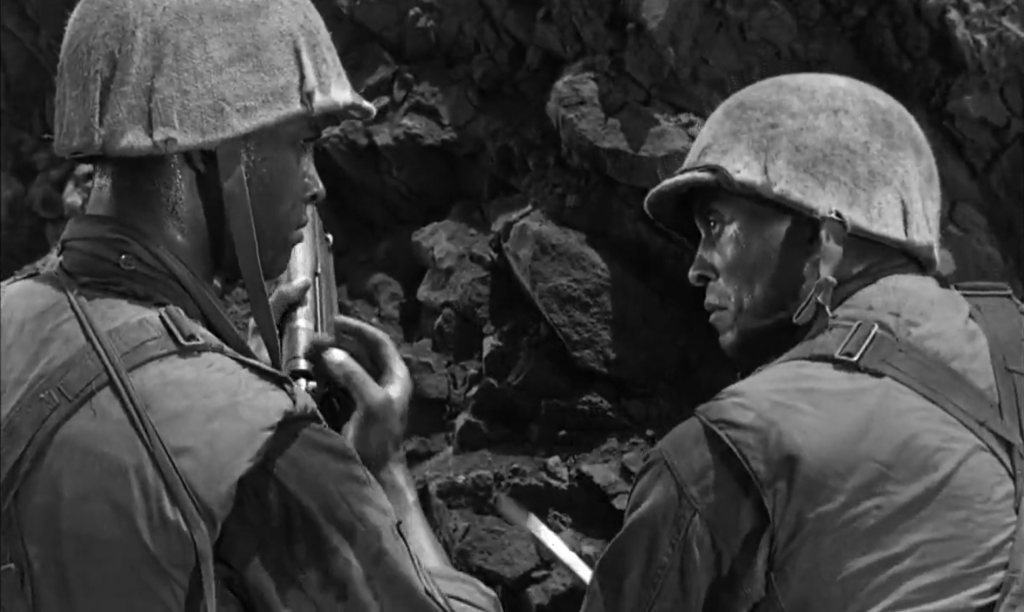
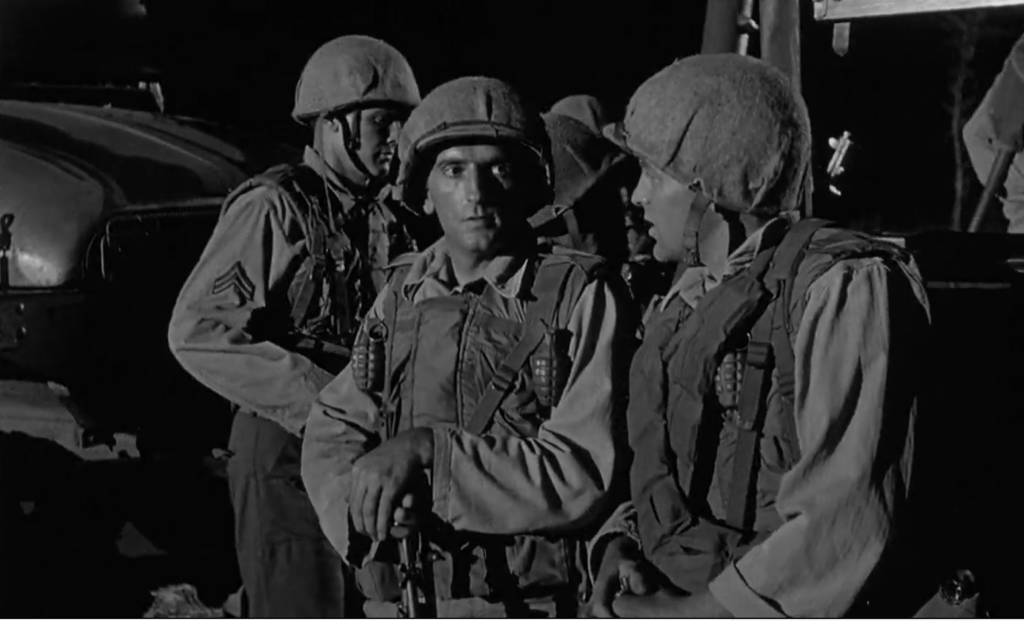
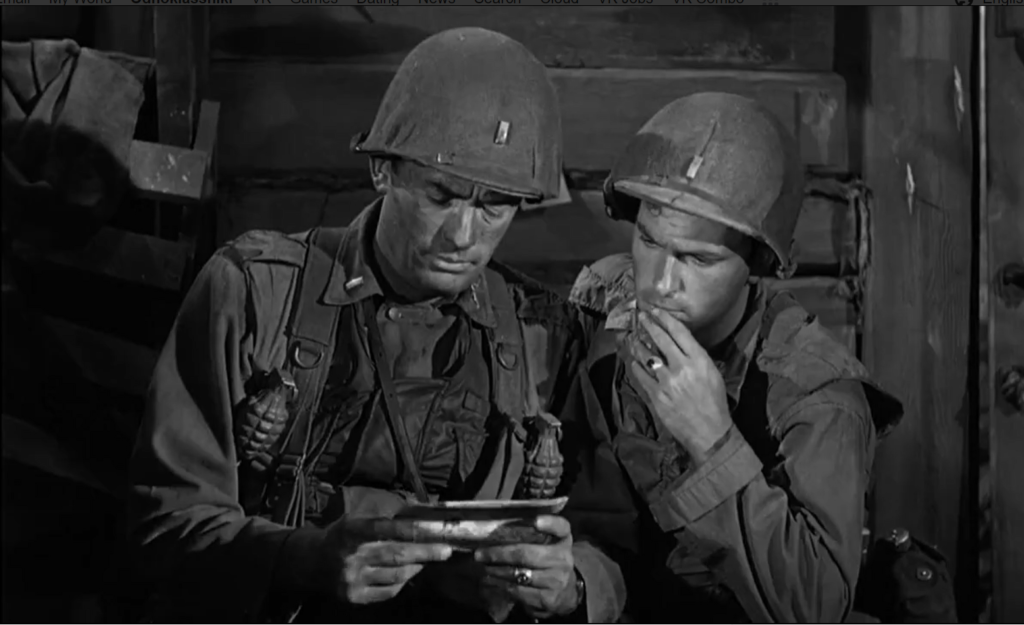
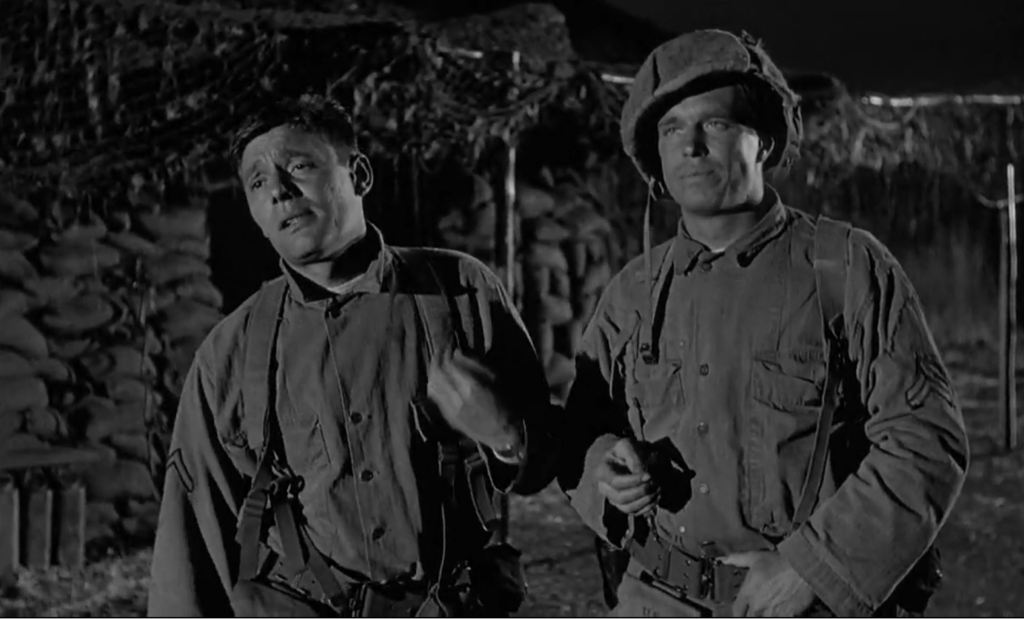
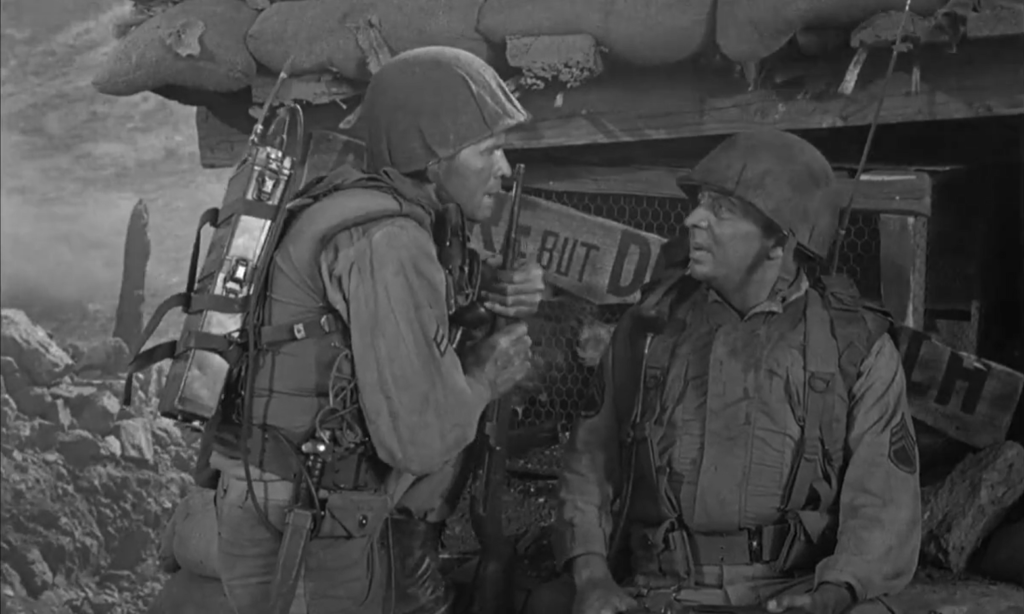
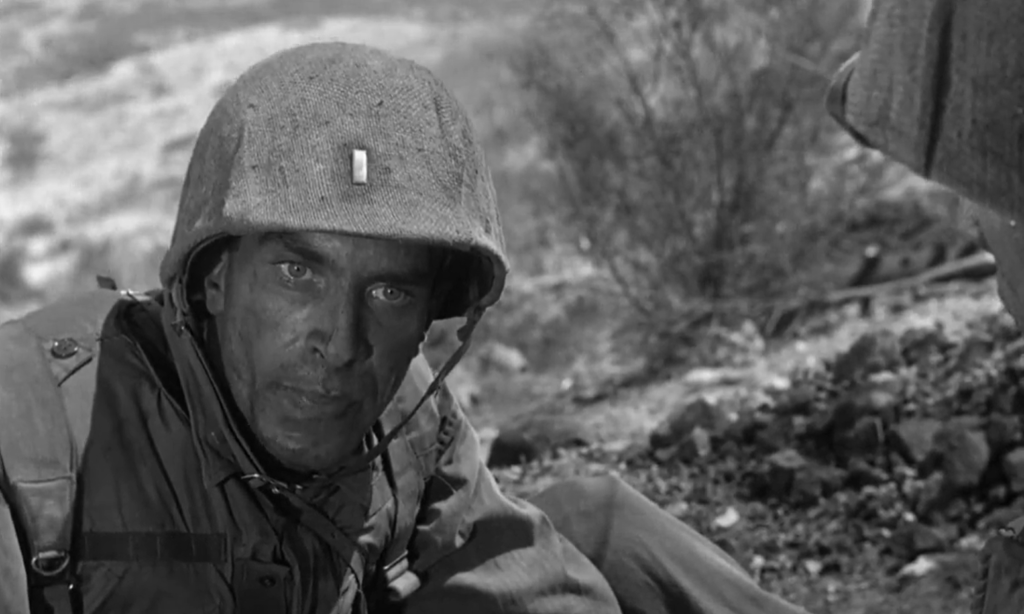
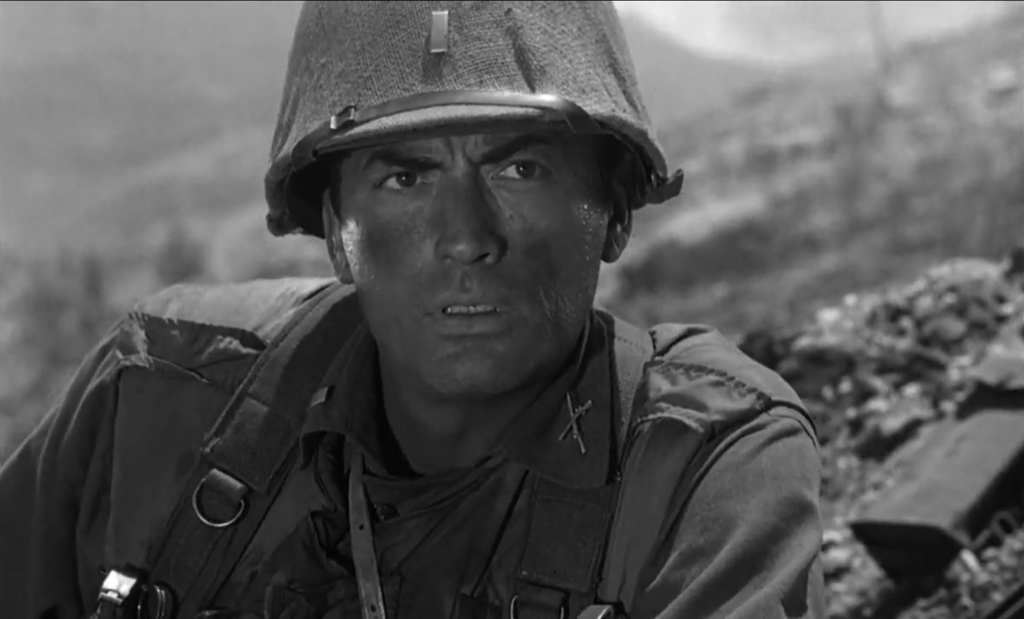
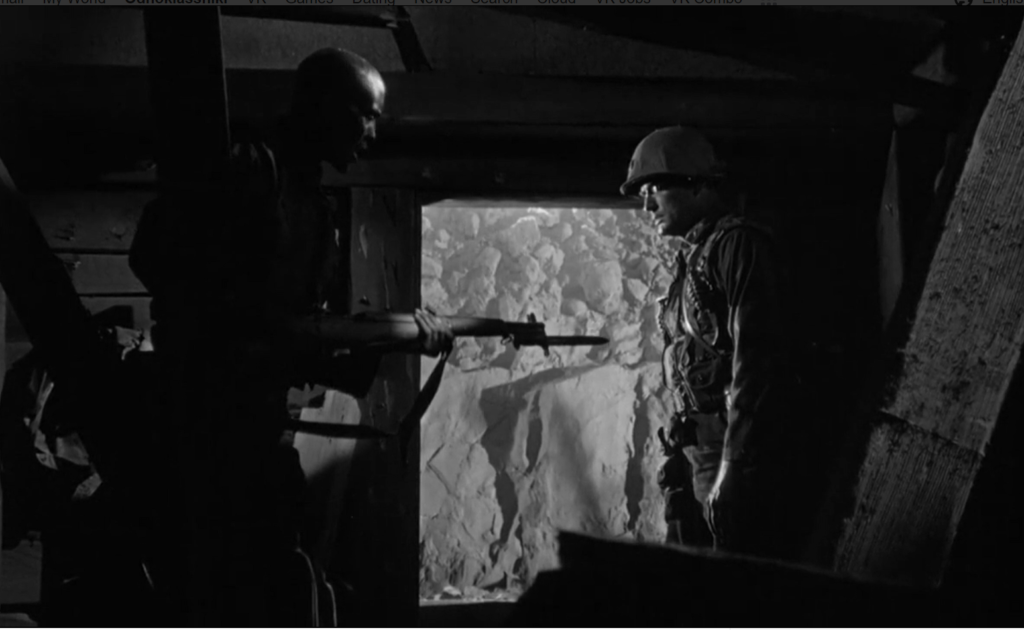
One thought on “Pork Chop Hill (1959)”
First viewing. Not must-see.
Although the finished film was apparently tampered with in ways unpleasing to Milestone (i.e., 20 minutes were said to have been cut from the opening because Peck’s wife felt that her husband’s first entrance came too late!), the bulk of the film attests to the confidence of the director.
Still, it’s like a lot of war films made to put a spotlight on a particular event. In this case, though the film is watchable, there is at the same time a feeling of ‘standard operating procedure’ – so the film doesn’t particularly stand out as unique.
Milestone shows strength in presenting the behavioral attitudes of regular guys (and it’s interesting, as noted, to see quite a few actors who would soon go on to larger careers).
But Peck’s performance is noticeably lacking in urgency – most likely because Peck was 42 at the time (he does seem old for a lieutenant) and the man he was playing (Joe Clemons, who was a technical advisor) was 24 at the time of the battle.